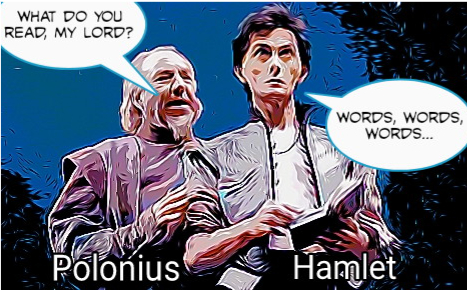Around the year 2009, it was almost impossible to use a PC without the Windows operating system installed. However, in recent years, Linux has grown to be an excellent alternative to Windows. Today, several Linux-based computer distributions are available for free or at an affordable price, if you are willing to go through some initial hurdles.
Yes, Tested Technology is running a series about Linux. But this isn’t about that. And what you’ve read above isn’t our writing. We haven’t stolen it either. The opening paragraph was written for us by a Web-based artificial intelligence service.
Empty of content, reflecting nobody’s real life experience, paragraphs of this kind are offered as suitable page-filling “content” all across the Web.
I had begun to wonder why so many Websites, having lured me in with startling clickbait (“12 things you need to know before you open your laptop…“), made me wade though paragraph after ad-laced paragraph of bland generalisations before getting anywhere near the point (if at all). Now I know.
And this junk isn’t coming from just the source that wrote my opening paragraph. There are at least a dozen other sites on the Web offering variants on the same idea.
A recent email from the word-faucet I’ve mentioned but don’t intend to publicise here is headed: Become a thought leader in 10 minutes a day.
Really? Well, yes. The idea seems to be that you spend your 10 minutes on their site to generate your two-page auto-blog and you’re done for the day. A “Thought leader” is an “Influencer” with a slightly wider vocabulary that includes words like “global” and “paradigm”.

Are you content with “Content”?
The way we think about things is strongly influenced by the vocabulary we use. “Content” is a metaphor that pictures for us the idea of something in a container. Books, for centuries, have—of course—been “contained” within their covers. But it was only at the beginning of this century that the fad for calling creative work “content” became stuck in the collective consciousness.
Why? Bach’s “St Matthew’s Passion” isn’t “content”, you might think. That’s probably because you’re not a television programmer. If you were, and you were scheduling the recording of a performance for next Friday evening, you’d very likely be thinking about and discussing it as something that slots in between other items, occupying three hours within the container of your channel. It’s “content’.
There was an old joke, back in the day when I wrote for hardcopy magazines, that the stuff we were writing—product reviews, opinion columns, general IT news—was just there to keep the adverts from bumping into each other. A river of print to float the ads. The Web’s getting to be like that. In spades.
The concept of “Content” tells us that there’s this important “Container”—whether it’s BBC Radio 4, the Daily Telegraph, a movie franchise, a TV series or some Website—that has a certain capacity that needs to be refilled regularly.
The best sort of “content” will attract readers. Ads will then get seen more often and make more money for the owner of the “container”. But once we start defining “best content” by the number of readers it gets (rather than the degree to which it informs and entertains) a new factor comes into play.
SEO, The Search Hustle
What is SEO? Why ask me when you can ask the artificial intelligence engine:
SEO has become a crucial part of website marketing that helps online business owners take their ventures to the next level.
SEO takes the hard work out of finding customers for your business. It uses keywords to push your site to the top of search engines, which can bring an endless flow of traffic right to your doorstep fast.
SEO stands for Search Engine Optimization. It’s used across the Web. SEO is a process that helps websites to obtain a high ranking in search engine results, thereby increasing traffic and visibility of the website. In this way, SEO is a human-friendly way to improve your online presence.
(These paragraphs are all samples of prose from the AI Ouija board.)
Google makes a lot of money out of those ads it dishes out across the Web. Owners of the various sites it targets aren’t, on the whole, minting it from the ads that arrive on their pages.
Some sites are very much like this. Many aren’t. But it seems that the insidious influence of SEO and the AI Ouija board is creeping across the Web. Watch out!
Chris Bidmead 29-Jul-22
